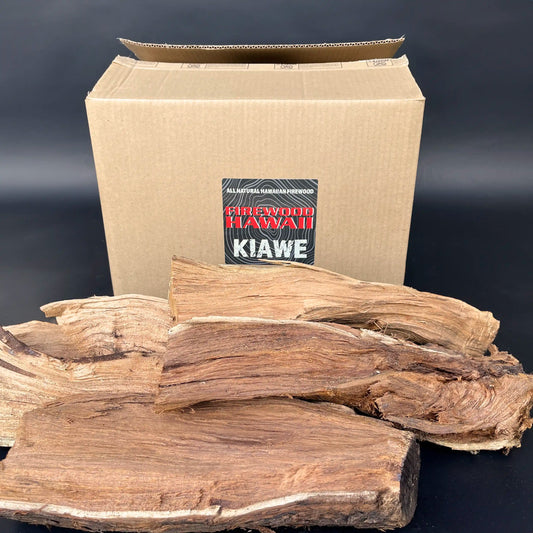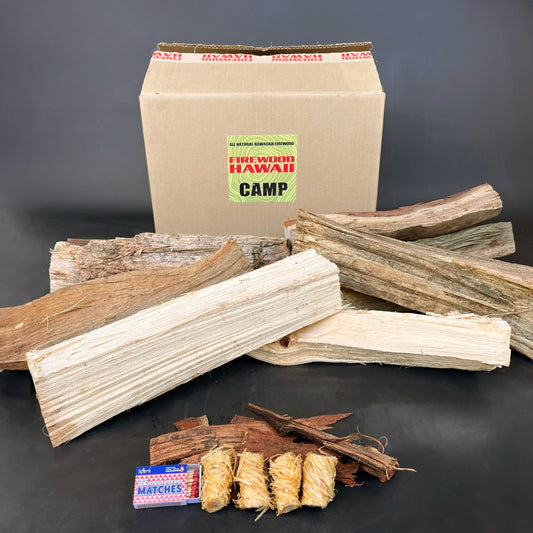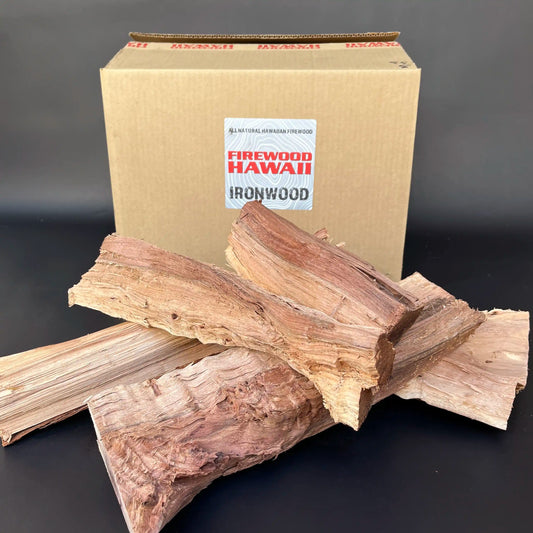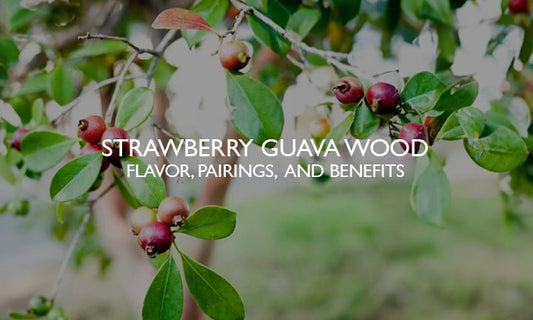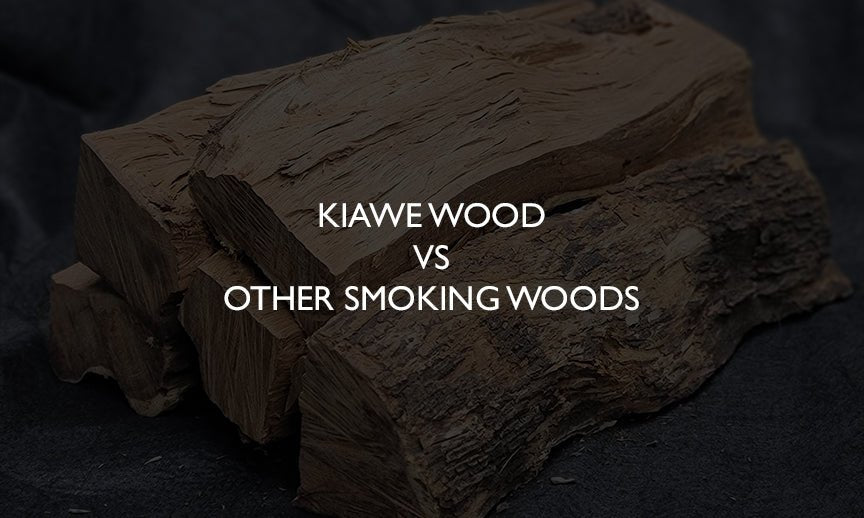
Comparing Kiawe Wood to Other Smoking Woods: A Detailed Review
Share
The art of grilling and smoking transcends beyond mere cooking, becoming a cultural ritual that evokes community, tradition, and flavor.
Central to this ritual is the choice of wood, which profoundly impacts the food's taste and aroma.
Among a myriad of smoking woods, Kiawe, native to Hawaii, holds a unique position for its exceptional qualities and deep cultural significance.
This blog offers a detailed comparison between Kiawe wood and other popular smoking woods, providing insights into their distinct characteristics and uses.
The Cultural Significance of Kiawe Wood

Kiawe (Prosopis pallida) is a mesquite variant that arrived in Hawaii in the early 19th century and quickly adapted to the local environment.
Hawaiians embraced this resilient tree, employing its dense, durable wood in various ways, from construction to the creation of tools and utensils.
But the most notable use of Kiawe is in cooking. For generations, Hawaiians have prized Kiawe for its high heat output and the sweet, slightly fruity, and mildly smoky flavor it imparts to food.
The use of Kiawe wood in traditional Hawaiian cooking is a testament to the region's culinary heritage, an echo of the old times that resonates even in contemporary cuisine.
Comparing Kiawe to Other Woods
1. Kiawe vs. Hickory
While Kiawe brings a touch of the Hawaiian islands to your BBQ with its sweet, mildly smoky flavor, Hickory, often considered the 'king' of smoking woods, provides a strong, hearty, and slightly sweet smoke.
Hickory's robust smoke makes it perfect for hearty meats like pork and ribs, whereas Kiawe's subtler flavor is more versatile, complementing delicate foods like fish and poultry, in addition to red meats.
2. Kiawe vs. Mesquite
Compared to the regular mesquite common in southwestern U.S. cuisine, which offers a bold, earthy, and intense smoke, Kiawe is milder and sweeter.
Mesquite's robust flavor pairs well with large cuts of meat, while Kiawe enhances a wider variety of foods without overpowering them.
3. Kiawe vs. Applewood
Applewood smoke is mild with a subtly sweet, fruity flavor, excellent for poultry, pork, and fish.
However, Kiawe offers a slightly richer and more complex flavor profile, adding depth to not just the lighter meats and fish but also more robust meats.
4. Kiawe vs. Oak
Oak is a classic smoking wood with a medium-strong, slightly sweet flavor.
Although versatile, Oak lacks the mild fruity undertone found in Kiawe smoke.
Kiawe's smoke complexity makes it a more intriguing choice for a range of culinary applications.
Conclusion
Choosing the right smoking wood goes beyond flavor—it's about invoking a sense of culture, tradition, and community.
Kiawe wood, deeply rooted in Hawaiian culture, offers more than just its unique sweet, mildly smoky, and slightly fruity flavor.
It brings a piece of Hawaiian heritage to your BBQ, a tradition that has been cherished and preserved for generations.
Its versatile flavor profile, steady burn, and cultural significance make it a valuable addition to any culinary exploration involving smoke and fire.
So, whether you're a professional chef or a backyard BBQ enthusiast, Kiawe wood promises to take your culinary creations to new, smoky, delicious, and culturally rich heights.




